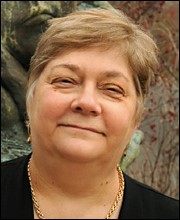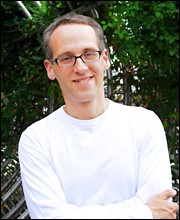Newport, Kahana Honored by the Society of Experimental Psychologists
APS William James Fellow Elissa Newport of Georgetown University and APS Fellow Michael Kahana of the University of Pennsylvania both received special awards at the 2018 Annual Meeting of the Society of Experimental Psychologists (SEP), held March 2-3 at the University of Arizona. APS Fellow Mary Peterson of UA served as chair of the event.
 Newport received the Norman Anderson Lifetime Achievement Award for her lifetime of profound theoretical and empirical contributions to the study of language acquisition and its relation to constraints on learning. Newport studies both normal language acquisition and creolization using miniature languages presented to participants in lab studies. One of her best-known contributions to the language research field is the Less is More Hypotheses, which holds that children are better at learning languages than adults because they have fewer cognitive resources available to bog them down. Her studies have shown children who begin learning a language in childhood show far better proficiency in both their first and second languages than adult learners.
Newport received the Norman Anderson Lifetime Achievement Award for her lifetime of profound theoretical and empirical contributions to the study of language acquisition and its relation to constraints on learning. Newport studies both normal language acquisition and creolization using miniature languages presented to participants in lab studies. One of her best-known contributions to the language research field is the Less is More Hypotheses, which holds that children are better at learning languages than adults because they have fewer cognitive resources available to bog them down. Her studies have shown children who begin learning a language in childhood show far better proficiency in both their first and second languages than adult learners.
 Kahana received the Howard Crosby Warren Medal for his fundamental contributions to the formal modeling of retrieved context information in memory and his discoveries in the human neuroscience of memory. Kahana’s research covers episodic, spatial, and recognition memory. His previous honors include the 2010 Troland Research Award from the US National Academy of Sciences. .
Kahana received the Howard Crosby Warren Medal for his fundamental contributions to the formal modeling of retrieved context information in memory and his discoveries in the human neuroscience of memory. Kahana’s research covers episodic, spatial, and recognition memory. His previous honors include the 2010 Troland Research Award from the US National Academy of Sciences. .
Newly elected members of the society were APS Fellows Richard Aslin (Haskin Laboratories) and Caren Rotello (University of Massachusetts, Amherst); Lila Davachi (New York University); Mary Hayhoe (University of Texas at Austin);, Allison Sekuler (McMaster University); and Nicholas Turk-Browne (Yale University), the winner of the society’s Early Investigator Award.
Topics addressed in the conference presentations included: memory systems for statistical learning; deep predictive learning of visual streams; Bayesian analyses of the likelihood of DNA contamination in criminal proceedings; the nature of umpiring biases in baseball; optimal training examples in natural-science category learning; the nature of V4 representations in visual processing; and evidence for plasticity in the brain regions responsible for language processing in young children.




APS regularly opens certain online articles for discussion on our website. Effective February 2021, you must be a logged-in APS member to post comments. By posting a comment, you agree to our Community Guidelines and the display of your profile information, including your name and affiliation. Any opinions, findings, conclusions, or recommendations present in article comments are those of the writers and do not necessarily reflect the views of APS or the article’s author. For more information, please see our Community Guidelines.
Please login with your APS account to comment.